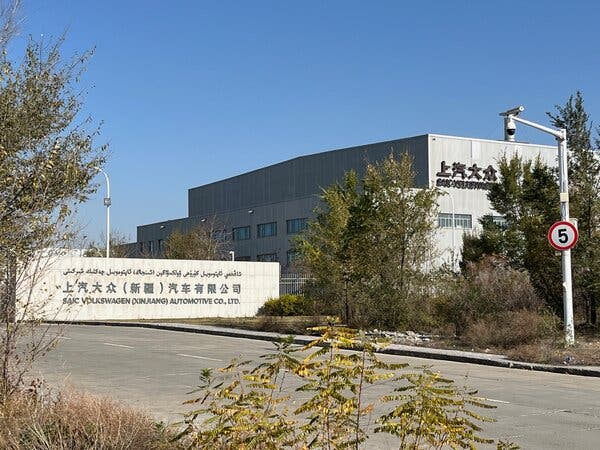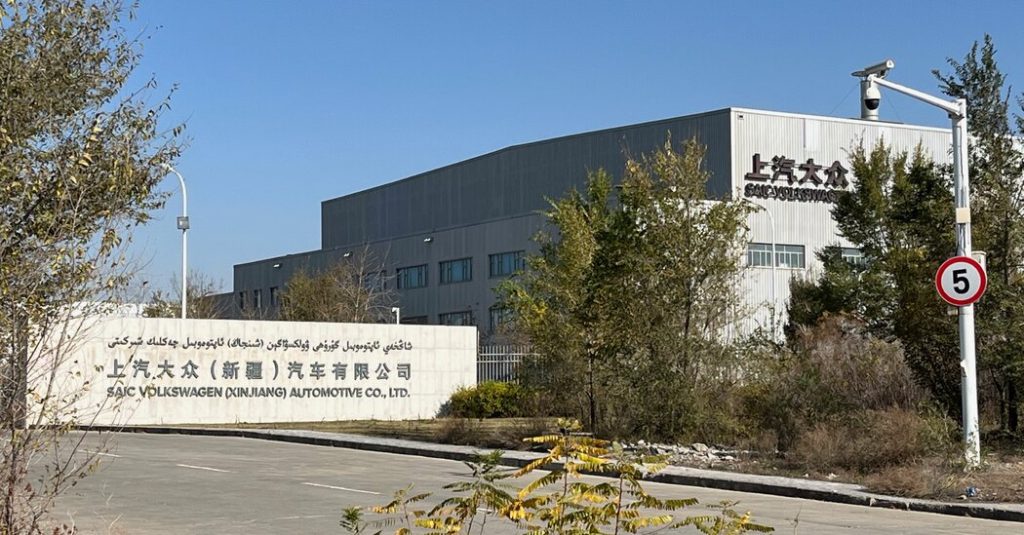Advertisement
SKIP ADVERTISEMENT
Supported by
SKIP ADVERTISEMENT
How Volkswagen Lost Its Way in China
A brutal price war, sudden shifts in consumer demand and human rights issues in Xinjiang have left VW stumbling in a market it led for 40 years.

Keith Bradsher
Reporting from Urumqi, the capital of China’s Xinjiang region
The high walls of industrial buildings at Volkswagen’s assembly plant in the heart of northwest China’s Xinjiang region extend for hundreds of yards, once a symbol of German industrial might and now a marker of Volkswagen’s business and political quagmire in China.
For four decades, Volkswagen Group was the market leader in China, where drivers prized its wide range of cars, from frugal Volkswagen Santanas to potent Audis and Porsches. But VW has been replaced as China’s go-to carmaker by the Chinese electric vehicle powerhouse BYD.
BYD rapidly expanded all-electric car sales over the past three years, forcing VW to make a big bet last year on that market. Then BYD caught VW off guard again early this year by ramping up sales of plug-in gasoline-electric hybrids that can go long distances on only battery power, with tiny gasoline engines as backups. VW has few offerings in that fast-growing category, a gaping hole it won’t fully close until the end of next year.
“Chinese consumers see VW as the king of yesteryear, an era when global brands reigned supreme,” said Michael Dunne, a China auto industry consultant. “Today, many Chinese consumers shrug at VW products with indifference. They prefer fresher, more compelling offerings from home-team brands.”
China’s state-owned banks and local governments have been pumping money into local automakers, allowing some manufacturers to sell cars far below the cost of making them. Volkswagen executives say that they refuse to join the price-cutting war and that they have relinquished market share as a result.
We are having trouble retrieving the article content.
Please enable JavaScript in your browser settings.
Thank you for your patience while we verify access. If you are in Reader mode please exit and log into your Times account, or subscribe for all of The Times.
Thank you for your patience while we verify access.
Already a subscriber? Log in.
Want all of The Times? Subscribe.
Advertisement
SKIP ADVERTISEMENT
Source: https://www.nytimes.com








More Stories
Washington Post Cancels Ad From Groups Calling for Trump to Fire Musk
As Trump Attacks D.E.I., Some on the Left Approve
One Response to Trump’s Tariffs: Trade That Excludes the U.S.